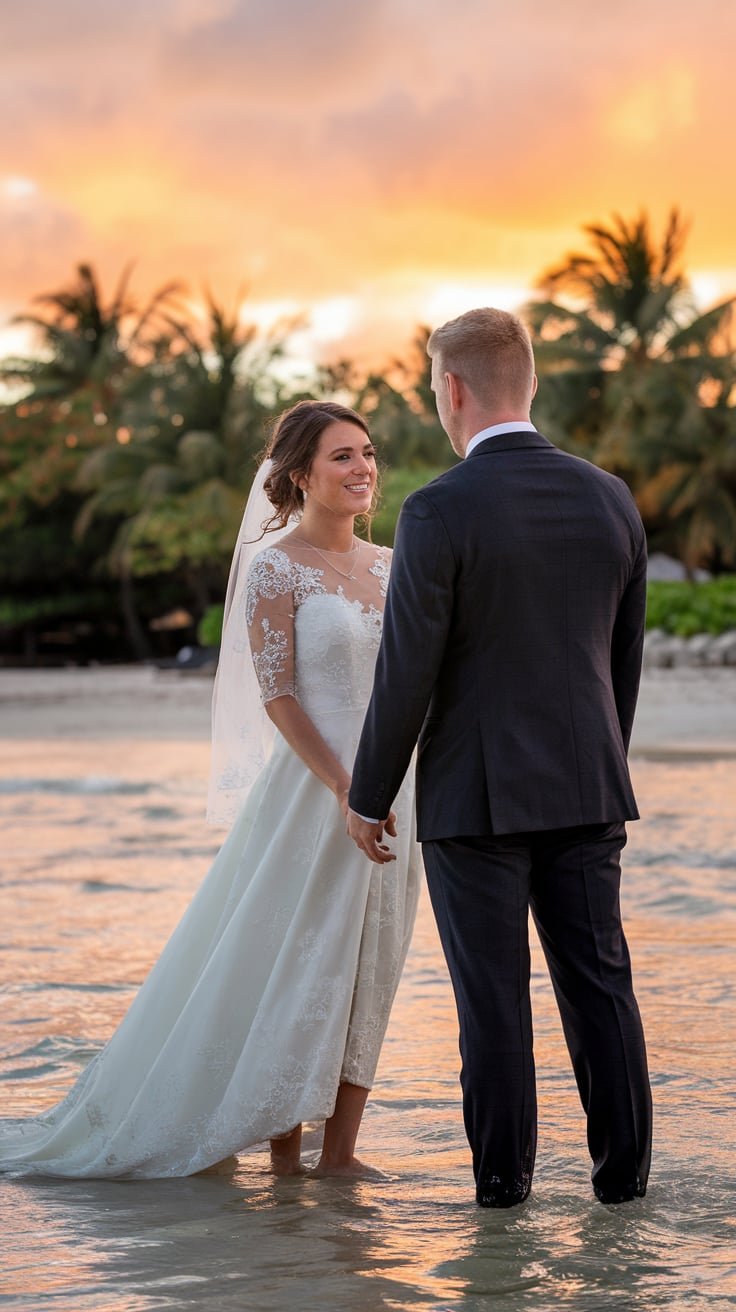The True Cost of Destination Weddings: Breaking Down the Budget
Understanding Destination Weddings
Destination weddings have gained significant popularity in recent years, allowing couples to exchange vows in stunning and often exotic locations far from their hometowns. Generally, a destination wedding is defined as any wedding that takes place in a location that is not the couple’s primary residence. This type of wedding typically requires travel for both the couple and their guests, transforming the marriage ceremony into a mini-vacation or adventure.
Common characteristics of destination weddings include a smaller guest list, which often helps couples to better manage their budget and create an intimate atmosphere. The chosen locations can range from picturesque beaches and secluded mountaintops to historic castles and vibrant cities. Each venue offers its own unique charm and sets the stage for a memorable celebration, providing couples with alternatives that diverge from traditional wedding settings such as local churches or reception halls.
The appeal of such weddings lies not only in their breathtaking backdrops but also in the unique experience they offer. Couples can select venues that truly reflect their personal style or dream locations that hold special meaning to them. Furthermore, destination weddings often encourage a spirit of adventure among guests, as attendees join the couple on a journey that combines a celebration of love with the opportunity to explore new cultures and environments.
Additionally, many couples appreciate the ease of planning associated with destination weddings, especially if they opt for all-inclusive packages offered by many resorts. This not only streamlines the planning process but often includes services such as catering, decoration, and coordination that can alleviate stress. The novelty, beauty, and memorable experiences afforded by destination weddings continue to capture the imagination of engaged couples worldwide.
Average Costs of a Destination Wedding
A destination wedding can evoke the charm of a faraway location while also presenting unique monetary considerations. The average costs associated with such weddings can fluctuate significantly based on various elements, including the chosen destination, the time of year, and the number of guests. One of the primary expenses is the venue fee, which typically ranges from $3,000 to $10,000 or more. This fee often encompasses space rental, basic decorations, and sometimes even event coordination services.
Travel expenses comprise another substantial portion of the budget. Couples must consider the cost of flights for themselves and any invited guests, which can vary greatly depending on the distance and the season. On average, travel costs for a couple can hover around $1,000 to $2,500, while for guests, this can escalate anywhere from $200 to $1,500, contingent upon their departure point. Additionally, accommodations need to be factored in, whether booking a block of hotel rooms for guests or opting for beachfront villas, costing anywhere between $100 to $500 per night.
Catering often stands out as one of the priciest components of a destination wedding budget. Expectations for quality food and beverages can elevate costs to around $50 to $150 per guest, influenced by the selected menu, drinks packages, and location logistics. Furthermore, there are various rentals to account for—such as tables, chairs, linens, and audiovisual equipment—which can result in additional charges, often reaching $2,000 to $5,000.
To summarize, while a destination wedding presents a picturesque setting, understanding and navigating average costs is fundamental for effective budget management. The key to a successful destination wedding budget lies in recognizing these varied expenditures and planning accordingly to avoid unexpected financial surprises.
Hidden Costs and Budgeting Tips
Planning a destination wedding often involves excitement and anticipation; however, couples must remain vigilant about various hidden costs that can quickly accumulate and impact their overall budget. One significant area to consider is transportation for guests. In many cases, couples may only factor in their own travel expenses, overlooking the cost of shuttling their friends and family to and from the ceremony and reception sites. It is essential to explore local transportation options, such as buses or shared rides, to achieve cost-effectiveness while ensuring guests can attend comfortably.
Next, additional accommodation requirements may arise. Certain guests, especially those traveling from faraway locations, might require more than just a short overnight stay. It is prudent to negotiate block bookings with hotels to secure discounted rates and ensure availability. This not only aids in budgeting but also contributes to a seamless experience for guests who will appreciate any savings and convenience. Couples should also consider how many nights guests will stay and accommodate for any extended trip expenses.
Furthermore, unforeseen fees can throw a wrench into even the most meticulously planned budget. Couples may encounter surplus charges for things like vendor travel fees, service gratuities, or additional insurance costs. To mitigate these unexpected expenses, it is advisable to conduct thorough research and communicate openly with vendors regarding any potential costs involved with destination gatherings.
To navigate these hidden costs effectively, couples should establish a comprehensive budget breakdown. Including a buffer within their budget for unexpected issues can help alleviate financial strain. By maintaining flexibility in their spending, couples can enjoy their special day without the burden of excessive financial stress.
Making the Most of Your Destination Wedding Budget
When planning a destination wedding, budgeting becomes a pivotal aspect that requires careful consideration. To maximize your budget, it is crucial to prioritize certain elements that matter most to you and your partner. Begin by identifying the key features of your wedding—be it the venue, catering, or photography—and allocate a larger portion of your funds towards these priorities. By focusing on what truly enhances your experience, you can allocate your limited budget more effectively.
Another effective strategy is to consider scheduling your wedding during off-peak times. Many wedding destinations have low and high seasons, which directly affect pricing. By opting for an off-peak season, you can take advantage of lower rates on venues, accommodations, and even travel costs. In addition, some vendors may offer discounts to attract clients during these slower periods, allowing you to maximize your destination wedding budget even further. This approach not only preserves your resources but also enables you to enjoy a more intimate ceremony with fewer crowds.
Furthermore, creativity plays a key role in personalizing your event without financial strain. Consider incorporating DIY elements to your wedding decor or opting for local flowers that resonate with the area’s culture. Involving friends and family in the planning process can also bring unique, personalized touches while mitigating costs. Utilizing local cuisine for your menu not only offers a genuine taste of the destination but can also be more budget-friendly than importing services or products from afar.
By evaluating priorities, choosing the right timing, and embracing creativity, couples can achieve a beautiful destination wedding that aligns with their aspirations while strictly adhering to their budget. This thoughtful planning approach allows for an unforgettable celebration of love in a breathtaking location.









